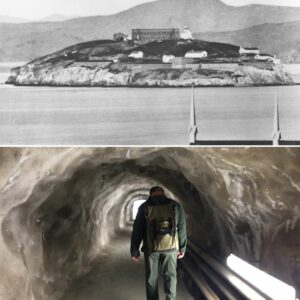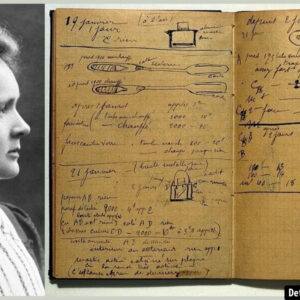In the early 1920s, Albert Einstein embarked on a journey that would take him to some of the most culturally rich places on Earth, but none left as lasting an impression on him as his visit to Japan. This journey, which began in October 1922, was not just a personal expedition but also a remarkable moment of intellectual exchange between two very different worlds. The trip allowed Einstein to explore the land of the rising sun, where he encountered a culture that intrigued, mystified, and inspired him in ways few other cultures had before. His time in Japan not only shaped his philosophical views but also gave him a unique insight into the convergence of Western science and Eastern traditions.
The Context of Einstein’s Visit to Japan
Albert Einstein’s journey to Japan was part of a larger trip that took him through several key regions of the world. After departing from Marseille on the SS Kitano Maru, Einstein and his wife Elsa spent several months traveling to places such as Egypt, Ceylon (modern-day Sri Lanka), Hong Kong, and China before finally reaching Japan on November 17, 1922. The purpose of his travels was not just leisure but to share his revolutionary ideas with the world. During this time, Einstein’s lectures and discussions about science and philosophy captivated audiences everywhere, and his time in Japan was no exception. The journey allowed him to both experience the uniqueness of Japan and introduce his ideas to a receptive and intellectually curious audience.
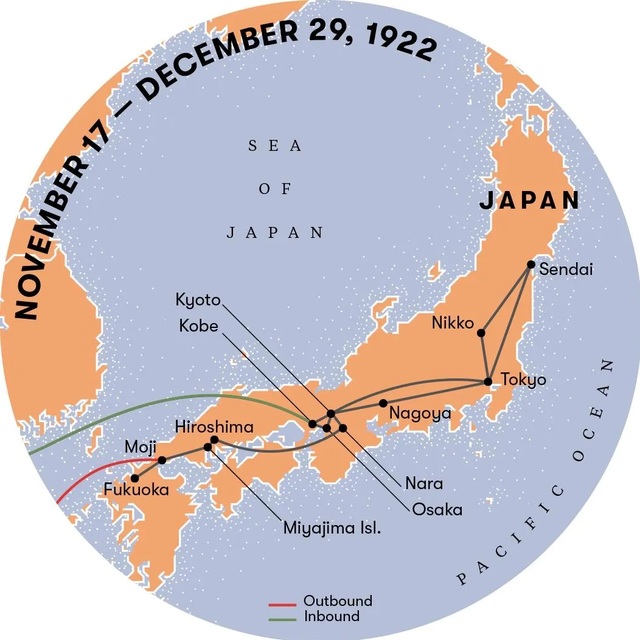
Video
Watch the video featuring the real speech delivered by the genius Albert Einstein in Japan!
The Fascination with Japan’s Culture
Japan, with its rich traditions and mystique, was a land that fascinated Einstein long before his visit. As he wrote in his journal, “The invitation to Tokyo was most pleasing to me because I have long been interested in the people and culture of the East.” Upon his arrival, Einstein was immediately struck by the beauty of Japan, its architecture, and the serenity of its landscapes.
He was particularly drawn to Kyoto, where he marveled at the traditional gardens and the intricacy of its temple structures. The contrast between the modern world of the West and the traditional East piqued his curiosity, and he observed these differences with a sense of wonder and humility.
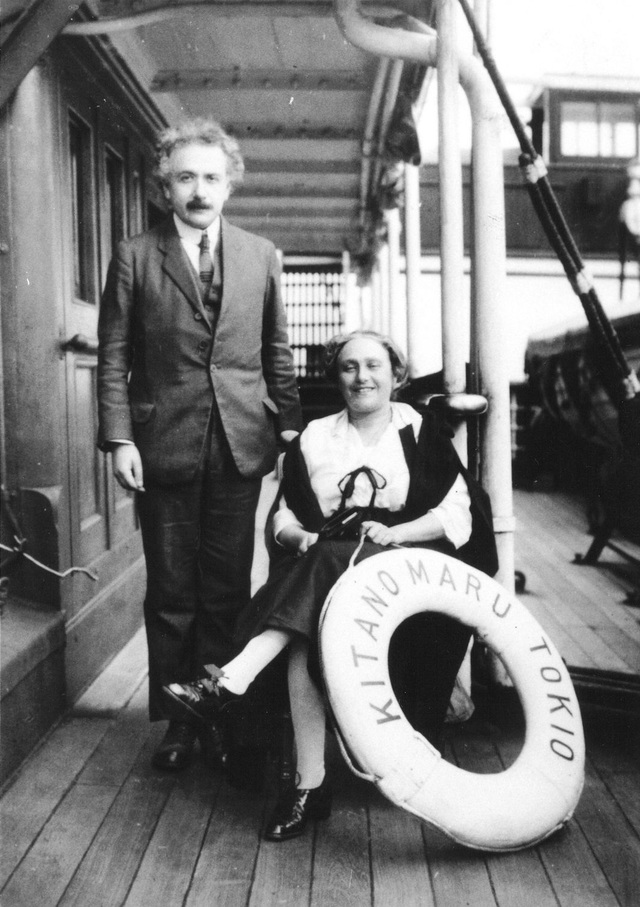
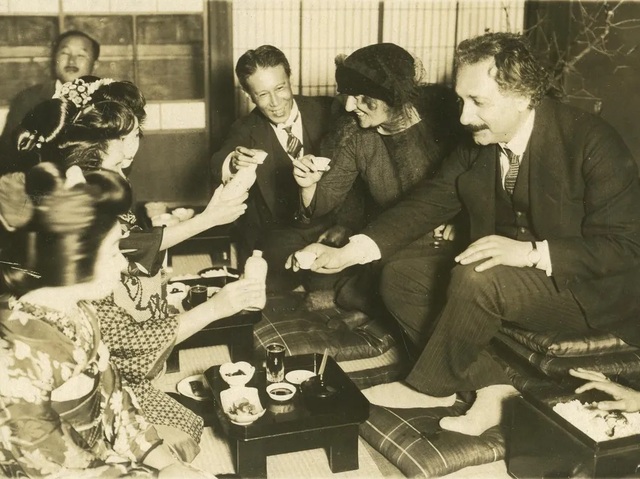
Cultural Exploration: Einstein’s Experiences in Japan
Einstein’s time in Japan was not only a journey of intellectual discovery but also one of cultural immersion. Despite being a seasoned traveler, he encountered several challenges adapting to local customs. He struggled to sit on the floor like the Japanese, finding it uncomfortable, and was unable to appreciate the raw, unfamiliar taste of local seafood. Nonetheless, he acknowledged the elegance of Japanese dining and the civility of its people. As Einstein wrote in his journal, he was amazed by the simplicity and profundity of Japanese life. He was particularly struck by the calmness and elegance of Japanese women, describing them as “flowers”—delicate, refined, and full of grace.
But his observations did not stop at mere aesthetics. Einstein was deeply impressed by the way Japanese culture balanced its traditional ways with modern influences. He noted how the Japanese were able to preserve their cultural identity while integrating new ideas from the West. This, for Einstein, was a testament to Japan’s ability to adapt and grow without losing sight of its cultural roots.
The Lecture Circuit and Public Reception in Japan
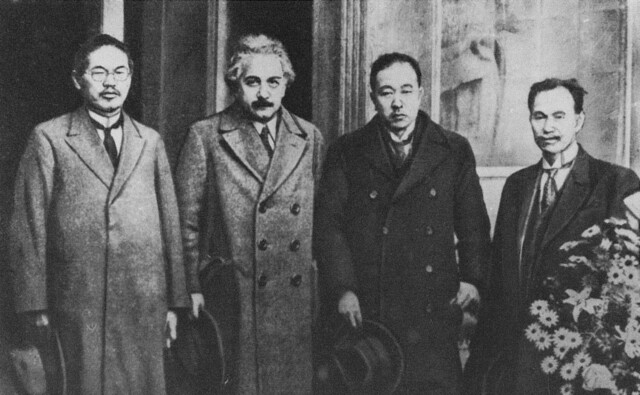
Einstein’s lectures and public appearances during his time in Japan were an important part of his visit. His presentations were attended by thousands, eager to hear from the world’s most famous scientist. At first, Einstein was taken aback by the level of attention he received. He had not anticipated the adoration and admiration the Japanese had for him. However, as time passed, he became more comfortable with the attention and began to appreciate the enthusiasm with which the Japanese embraced knowledge and learning.
His talks were not just about science but also reflected his personal philosophy, which resonated deeply with his audience. In Japan, Einstein’s ideas found fertile ground, and his teachings left a lasting impact on the intellectual community.
Einstein’s Philosophical Insights: The “Theory of Happiness”
During his stay in Japan, Einstein’s thoughts on happiness and life were crystallized in a series of famous notes he wrote. At the Imperial Hotel in Tokyo, Einstein, in a moment of reflection, shared his thoughts with a bellboy who had refused a tip, following the local custom that viewed tipping as disrespectful. Instead of money, Einstein wrote two notes in German that have since become legendary. The first note read: “A calm and modest life brings more happiness than the pursuit of success combined with constant restlessness.” The second note was even more profound: “Where there is a will, there is a way.”
These notes, reflecting Einstein’s contemplative side, were later auctioned for $1.8 million in 2017, highlighting the enduring appeal of his philosophy on happiness. His time in Japan, where he observed the simplicity and purity of life, led him to a deeper understanding of the value of peace and contentment over material success.
Einstein’s Thoughts on Japan’s Culture vs. Western Society
In a reflective essay published in 1923, Einstein compared Western society with Japanese culture. He admired the Japanese for their ability to honor Western intellectual achievements while maintaining a strong sense of cultural identity. He believed that Japan’s blend of ancient traditions with modern influences made it unique, and he saw this balance as a source of strength. According to Einstein, “The Japanese admire the intellectual achievements of the West and embrace the new scientific ideals, but they do not forget to preserve the purity of their traditions. This balance makes the Japanese culture superior to the Western one.”
This insight into the Japanese approach to life and knowledge left a lasting impression on Einstein. Unlike the often fast-paced and restless pursuit of success in the West, Japan’s deep connection to its traditions and focus on inner peace resonated with his own thoughts on what constitutes a meaningful life.
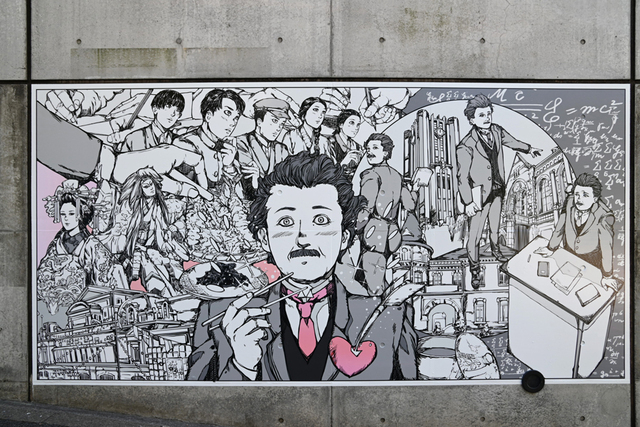
World War II and The Aftermath of Einstein’s Visit
Einstein’s visit to Japan came at a time when the country was beginning to embrace militarism, a trend that would eventually lead to its involvement in World War II. By the time World War II broke out, Einstein had already left Germany, where he faced persecution due to his Jewish heritage, and had settled in the United States. The tragic irony of the situation was that the same scientific principles Einstein had developed, such as his famous equation E=mc², were later used to develop nuclear weapons that would devastate Japan in the aftermath of the war.
This stark contrast between the peaceful and intellectual Japan that Einstein had admired and the country’s subsequent descent into militarism troubled him deeply. Yet, despite the devastation caused by the war, Einstein’s admiration for the Japanese people and their culture remained strong.
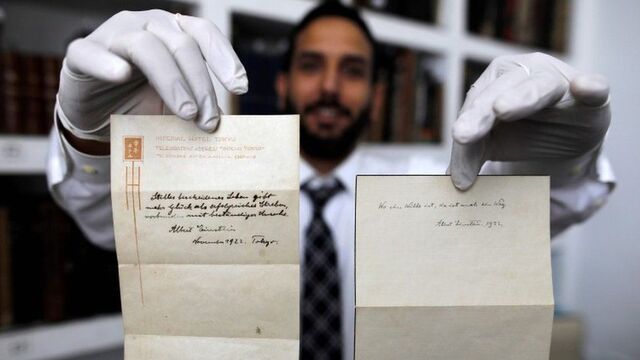
Video
Watch the video of Albert Einstein in 1939, brought to life in stunning color!
Conclusion: The Lasting Influence of Einstein’s Japanese Visit
Albert Einstein’s visit to Japan in 1922 was more than just a scientific tour; it was a profound cultural exchange that shaped his views on happiness, peace, and intellectual pursuits. His time in Japan left him with a deep respect for the Japanese people’s ability to preserve their traditions while embracing progress. The legacy of this visit can still be seen today in the continued admiration for Einstein’s philosophy and his enduring relationship with Japan. His reflections on simplicity, peace, and cultural purity remain relevant, offering valuable lessons in a world that continues to balance tradition and modernity.

